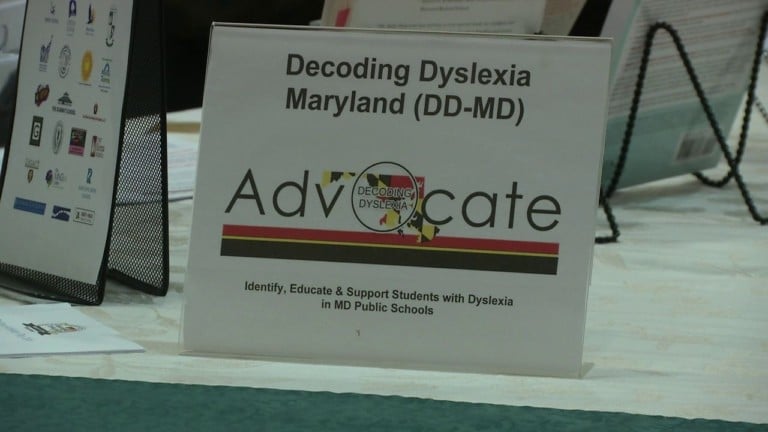Md. literacy experts give recommendations to change literacy outcomes

On Tuesday, literacy experts, education leaders, and students came together in Annapolis on Tuesday in the hopes of changing literacy outcomes in Maryland.
More than half a year ago, the state created a Task Force to study the Implementation of a Dyslexia Education Program. One of the responsibilities of the task force is to develop a pilot program in the hopes that the Maryland public school system could change the way it educates students with language based learning disabilities.
In Maryland public schools, 60% of elementary students do not read on grade level, that’s according to data collected in 2015 by the Partnership for Assessment of Readiness for College and Careers (PARCC). These rates are alarming to literacy experts, and they tell us this is a red flag for dyslexia and language learning disabilities.
Lisa Blottenberger, the Decoding Dyslexia Maryland State Leader says, its is important, “Knowing how to help those students that are struggling.
Elisabeth Liptak, the Director of Professional Development for Effective Reading Instruction says, “It is critically important because by the time they get to the third grade there is a lot of catching up to do.”
Representatives from Decoding Dyslexia Maryland and the Maryland Dyslexia Task Force gave their recommendations after collectively doing research for more than half a year of research. They say helping struggling readers needs to start with how teachers are educated in college.
“What we find quite often is that teachers say that they have not received this kind of training while they were in schools of education,” says Liptak.
Liptak tells us there is a need for teachers to become certified or specialize in reading whether that is before or while they are teaching. As for the children, the task force and Decoding Dyslexia found that more precise screenings must be done earlier.
“So we can be testing them as early as kindergartens and Pre-K even in some areas to see if they are not in line with their early oral language skills,” Liptak.
The folks with Decoding Dyslexia and the Task Force tell 47 ABC they can’t do this alone. We asked the Assistant State Superintendent of Special Education and Early Intervention Services about what she thought about the recommendations and how funding might help in this effort. She agreed that a change in system is needed, but that she could not comment on the recommendations just yet.
The Assistant State Superintendent also told 47 ABC off-camera that the higher education system, such as colleges and universities hold responsibility in training teachers how to pinpoint and help students with language based disabilities. She further explained that if the individual school systems deemed it necessary to train their teachers it would be up to the individual counties in Maryland to budget for that continuing education.
For more information on Decoding Dyslexia Maryland click here.

